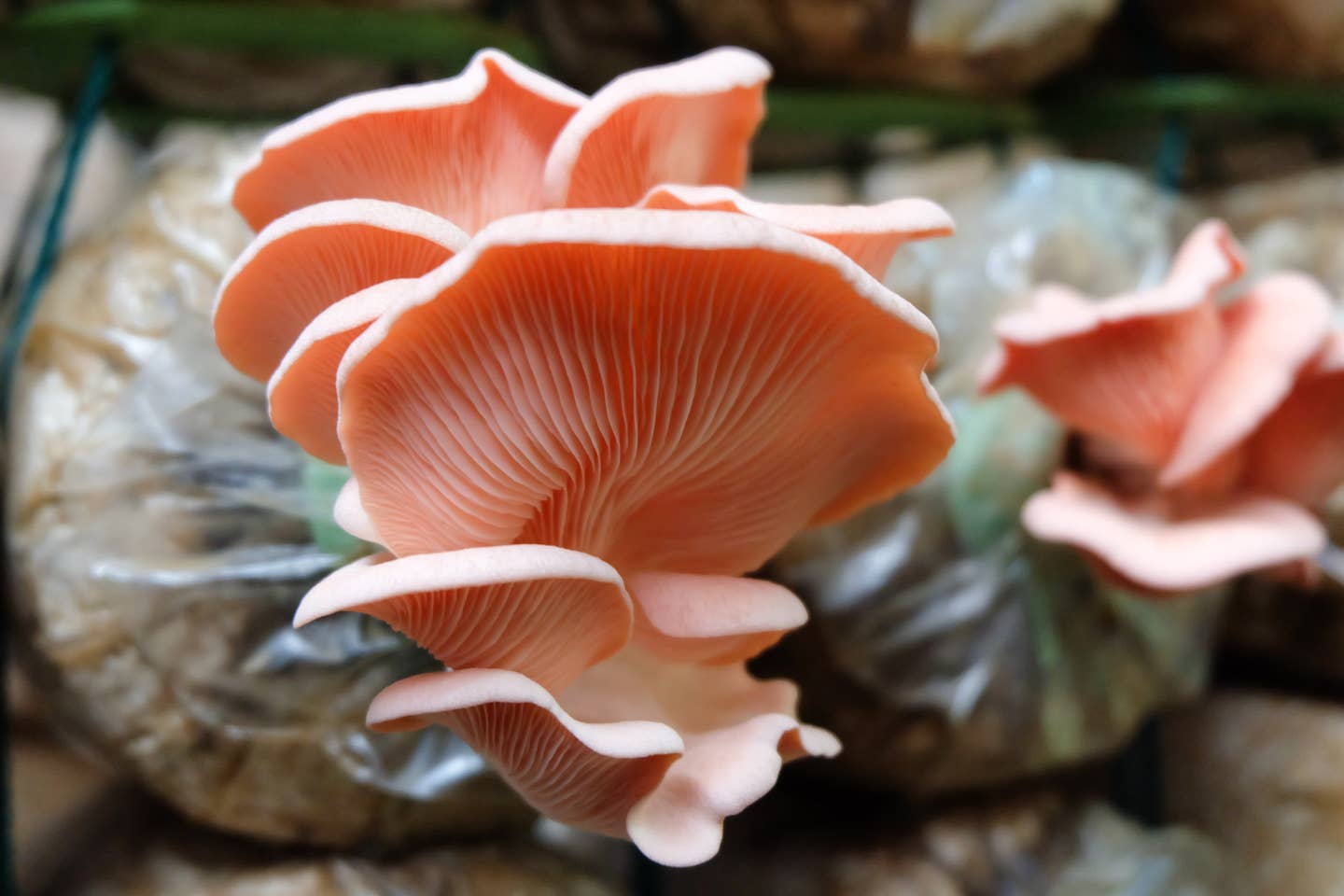
5 Reasons to Watch Fantastic Fungi and Add Mushrooms to Your Diet
Unless you’ve been hiding under a rock (like our fungi friends) you know that mushrooms are the latest plant-based food to enjoy a resurgence in cooking. The main reason is that these are the original "food as medicine" ingredient, but for anyone who has watched Fantastic Fungi or was lucky enough to attend the first Fantastic Fungi Global Summit, you won't be able to stop talking about the benefits of mushrooms.
There is a reason that the current interest in and excitement about mushrooms is spreading fast. From using them in plant-based cooking, or taking medicinal mushrooms to boost the immune system, to enjoying their psychoactive compounds, it seems everyone’s gone mad for mushrooms.
Fantastic Fungi is more than a summit, it's a movement
The first-ever Fantastic Fungi Global Summit was held virtually, as a three-day event hosted by Fantastic Fungi filmmaker Louie Schwartzberg. Following the underground success of the film, he gathered more than 40 leading experts to expound on the benefits of mushrooms for the planet, health, and personal wellbeing. Here are the highlights. And if you’re one of those people who won’t eat mushrooms, this may change your mind and make you want to start including them for your health.
Humans are evolutionarily related to mushrooms
You might think this is bunk. In the primordial soup, we all know we came from fish, right? But one mind-blowing fact from the fascinating and visually beautiful film Fantastic Fungi (Netflix) is a stark realization of how fungi are key not only to our ecosystem but to our actual existence as well. In the evolutionary tree, we humans divided from fungi about 650 million years ago —and as animals, we branched out to process our nutrients in an internal sack (that eventually became the digestive system) while fungi chose to go underground to externally digest their nutrients, stabilizing carbon in the soil and contributing to the ecosystem. Humans are actually "related" to fungi, and also to mycelium, which is the network of fungal threads that are abundant under every footstep you take in the forest. This mycelium could be considered "the mother of us all," as the experts in the film commented.
Fungi helped the human brain triple in size
Another fast fact to repeat at parties; The ‘stoned ape’ hypothesis holds that fungi were a factor in tripling the size of the ape brain and helping sapiens develop skills such as language as we evolved into humans.
In the film, mycologist Paul Stamets talks about how fungi connect us not only with their ever-present underground network of mycelium (benefitting plants, animals, and humans), but in an evolutionary way, through the psychoactive properties of mushrooms. “A core concept of evolution is that through natural selection the strongest and fittest survive," he explains. "But moreover, communities survive better than individuals, and that’s the power of goodness evolution -- it is based on the concept of mutual benefit and the extension of generosity.”
Fungi: Food as medicine
Mushrooms have adaptogenic properties, which means they can regulate and modulate the body’s stress response and this has further beneficial effects on many systems in the body. Studies show that mushrooms modulate the immune system and have many beneficial health effects including weight loss, brain and heart health, and even fighting cancer.
Mark Hyman, a doctor known for advocating functional medicine, and author of The Pegan Diet and Food Fix, explained how foods such as mushrooms are medicine for the body, and that we need to view food not just as calories and energy. “The quality of the information in the food determines the quality of your health," Hyman told the summit attendees, and "if your food contains junky information like bad code, you will change your biological software in ways that are downgrading it, as opposed to upgrading your biological software by using food as medicine”.
Hyman added that the power of food as medicine is such that it “works faster, cheaper, and better than any drug ever invented – and is available to everyone on the planet.” Furthermore, he points out, healthy food eaten in moderate quantities has no side effects.
Mushrooms enrich the soil and our microbiome
Mushrooms contain a whole host of compounds, minerals, and nutrients, including polysaccharides and antioxidants that are good for the gut and help produce a healthy microbiome. According to studies, the fiber in mushrooms acts as prebiotics, stimulating good bacteria and improving gut health and overall health.
However, several experts at the summit warned that when we damage our ecosystem (through pollution and soil degradation) we also damage our own health, in particular our gut health.
The soil naturally contains trillions of microorganisms, including fungi that are beneficial to plant life and human health. Eating a plant-based diet provides our bodies with essential nutrients, but current agricultural methods tend to deplete the soil and contaminate plants with pesticides, as well as strip fruit and vegetables of their natural nutrients so that over time, even eating plant-based will have less benefit to human health. "Whatever we do to these things we do to ourselves” Hyman points out.
Zach Bush MD agrees: The collapse of the ecosystem and soil quality is reflected in the collapse of the cell-to-cell communication in our bodies by beneficial bacteria, he points out.
On his website, he hosts a video that is encapsulated with this sentiment: "We’ve built an entire economy around the concept of healthcare, and it’s failing us. Watch this video to learn more about chemical farming and the loss of human health.
At the summit, he explained that our bodies are already seeing the effects of our farming systems. “We’ve become separated," from the wholesome nutrients our bodies need to thrive, he explained at the summit, and "We’ve sterilized ourselves." What he means by that: "We’ve become disconnected [from beneficial natural food systems] and the ramifications are deep. The network we see in soil systems is failing within the human body, leading to an epidemic in chronic disease.”
Western societies undervalue mushrooms
Dr. Andrew Weil, perhaps the best-known integrative medicine advocate at the summit, explained that he had researched the medicinal properties of mushrooms back in the '70s, and continues to have a longstanding interest in the power of fungi. He explained that mushrooms have always been undervalued by western medicine, yet highly valued in Eastern cultures and Chinese Medicine, which places them at the top of the list of superior natural products that are good for a wide array of conditions. He adds that ginseng is also in this category of a superfood as medicine.
Weil explained that it's simply irrational that Western societies have undervalued mushrooms for so long – especially for their therapeutic potential and nutritional content. He added that mushrooms contain compounds that are not found elsewhere in nature, and “there’s a lot of toxicity in the mushroom world" which means that for treatment of diseases and conditions. "There’s really no difference between a drug and a poison except the dose," he explained, "so one way you find new drugs is to look at toxins and see if you can manipulate them and get them to low enough doses to make them useful.”
A lot of the mushrooms used in China, Japan, and Korea are non-toxic polypores (a type of mushroom that grows in a shelf shape in forests) that can help modulate immune function and increase resistance to infection and cancer.
“We don’t have agents like that in Western medicine," Weil adds, "We know a lot of things that can harm immunity but we don’t really have anything that can enhance immunity.” He noted there are so many beneficial fungi – including Reishi, Maitake, Shitake – but the English-speaking world is ‘myco-phobic’ – fearing that mushrooms are worthless, poisonous, or dangerous and this mindset blocks scientists from looking to mushrooms for therapeutic effects, he adds, despite early research that compounds in mushrooms can halt the growth of cancer cells in the lab.
Another obstacle is that Western medicine only recognizes medicines that work on one condition at a time, whereas mushrooms can work on a variety of systems. “In Western medicine, if something is good for a lot of different conditions, we don’t take interest in it, because we think that means it can't work by a specific biochemical mechanism," Weil said. "We like magic bullets that have a specific effect on a specific disease, in Chinese philosophy, those kinds of drugs are considered the least valuable – in the inferior medicine category.”
Benefits of psychoactive mushrooms
In the 1970s Nixon waged a war on drugs, which also stooped all research into the psychoactive potential of mushrooms. This got reversed in 1999 when Johns Hopkins Medicine researchers ignited new research into therapy that includes psilocybin (the active compound in magic mushrooms).
Scientists have discovered that psilocybin is beneficial for reducing anxiety in some cancer patients and has the potential to treat a wide range of mood and substance disorders. Johns Hopkins researchers believe that we need to understand the potential benefits of magic mushrooms for patients who have disorders such as depression or anxiety, or other mental conditions. Micheal Pollan the author commented that because this is not a good business model, drug companies may not be interested in pursuing the studies.
The summit also included a discussion with Jonathan Levine, director of the popular series ‘Nine Perfect Strangers’ whose theme was a spiritual retreat that included micro-dosing with hallucinogenics. Retreats involve patients who consent to the treatment (unlike the fictional series) and some have profound and enlightening experiences which can change their mental health for the better. Doctors acknowledge this may not be suitable treatment for people with serious mental health issues, and the debate continues around ethics and legalization of psychedelics.
More From The Beet






